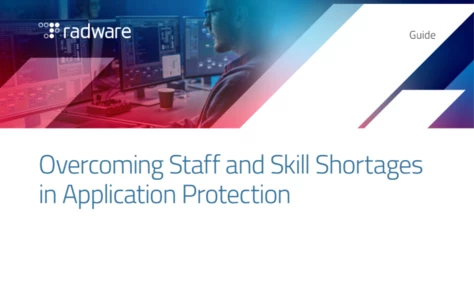What is Health Technology? Definition, Benefits, Challenges
What staff considerations should businesses take into account to ensure resilience in light of the coronavirus?

The last decade alone has seen the crescendo and fade of multiple disease outbreaks. MERS, Ebola, and Zika are just a few diseases that made the rounds before successful intervention silenced them. However, this reminds us of the haunting fact that the coronavirus is, unfortunately, merely a predecessor for the next outbreak, and the next outbreak will be that of the one to follow, and so on.
However, the coronavirus is unique in that it has been a particularly violent awakening. In the UK, it seems that all notion for 'Keep Calm and Carry On' has now been rendered redundant. Instead, businesses are continuously whirlpooling into further uncertainty as the coronavirus severs all ties to 'business as usual'.
Thus, COVID-19 has been an aggressive reminder that organisations must always be planning for resiliency. There is no room for optimism bias in continuity, and the 'it won't happen to us' approach will now have come back to bite those that never considered a Plan B.
The shift to remote working
Every business's priority should be its people. Thus, organisations must always be prepared to allow for an influx of employee absences in the event of an outbreak, whether they are infected, high risk, or simply anxious. Granted, disease outbreaks are hardly a monthly occurrence, if yearly, and rarely to this scale. However, in the event of the coronavirus, many businesses will have been caught by surprise after Boris Johnson's sudden ushering for employees to work from home.
While it's admirable to strive for business as usual until the very last minute (strangely, I immediately think of the musicians on the sinking Titanic), you must consider whether it's worth the risk. One person can unknowingly infect their colleagues, rendering a whole office too unwell to work. If your employees had simply worked from home sooner, you would be able to mitigate any further disruption. Of course, it'd be unreasonable to close the office with every whisper of an outbreak, but that leaves it to you to decide what metrics you need to see before you start considering such a move.
To fully embrace employees working from home, you must ensure you have enough devices to go around. Furthermore, consider how your employees will connect to your network and whether you will need more VPN licences. Once you've ensured connectivity, you must strategise communication: Do your staff have the necessary collaboration tools? How often do you need to be checking in with them, and how? What monitoring platforms can you quickly install to observe productivity?
Fortunately, as remote working intensifies as a modern trend, the shock is somewhat absorbed. However, your next matter for consideration is the return to normality.
Getting your return right
Once the government lifts restrictions, people will quickly want to resume their usual day-to-day. However, you must first ensure that your staff are indeed well enough to return. Make sure you don't put pressure on anyone to come back if they don't feel they are ready. You as an employer have a role to play in quashing disease transmission, so if any of your staff have doubts about their recovery or health, hear them out.
You also need to think about whether you need to hire temporary staff, and not just to fill in for those who will be delayed in coming back. This is because the coronavirus has essentially led to many businesses getting frozen in time. Whether that's a recruitment freeze, purchase freeze, and so on, you may come back to experience a backlog that must be handled. In turn, you should consider whether or not you need to hire temporary staff to help managed the workload.
Furthermore, engage your staff in more regular catch-ups until you feel all has settled. Try to get as much visibility in what each employee needs to make up for any lost opportunities, but hopefully there won't be too much to chase if the remote working period was executed well.
Most importantly, however, you must take note of what worked and what did not. As mentioned before, the coronavirus will not be the last pandemic or reason to work from home.
Enjoy this piece? Why not check out how to ensure your remote workers are secure?

























